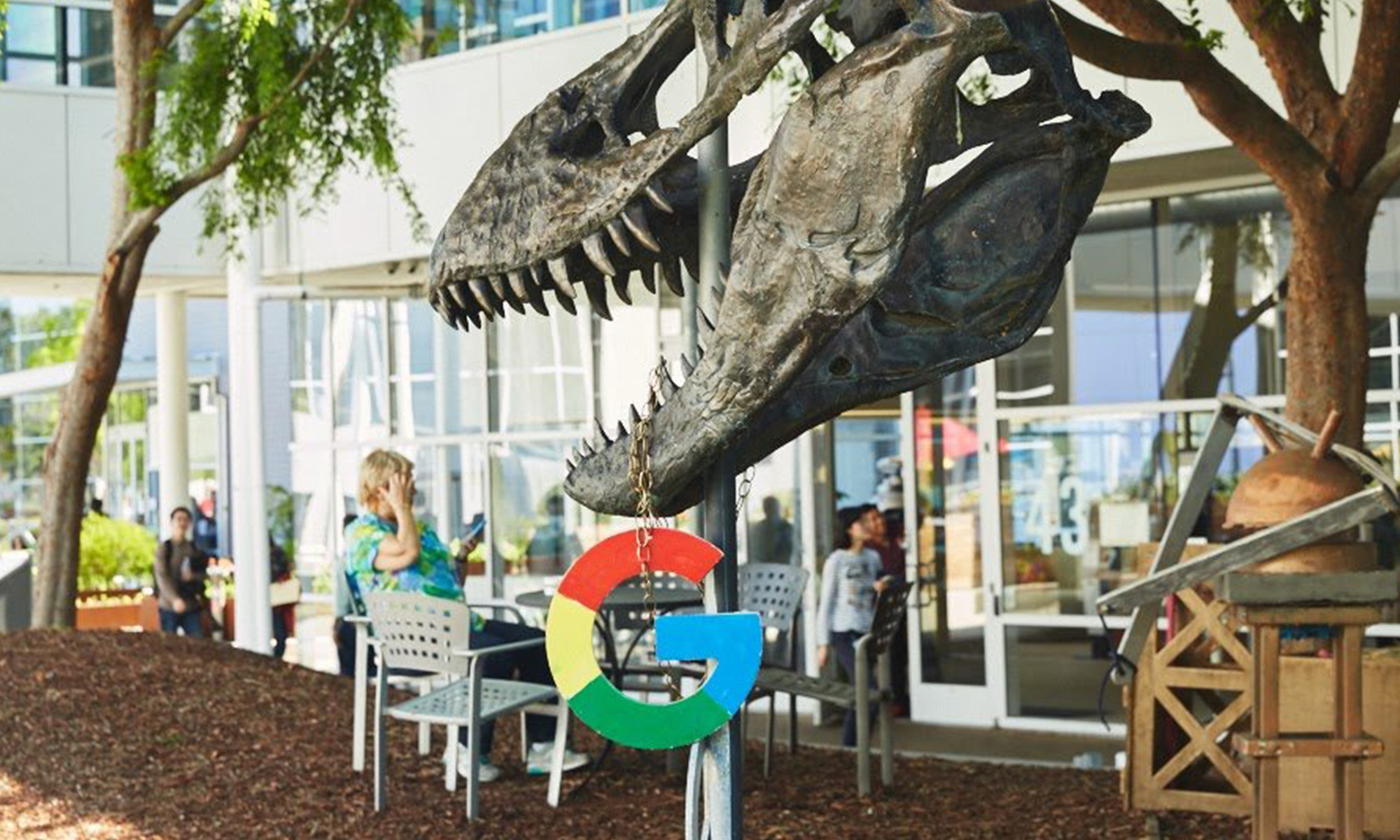Google (GOOG +2.44%) (GOOGL +2.37%) is under fire from Russian authorities over competitive issues, and the European Union isn't far behind. Meet the competitor that sounded the horn and learn how the final decision from Russia, expected to be delivered this week, could set up Google for a tough battle in Europe.
A full transcript follows the video.
Sean O'Reilly: I've got a fever, and the only prescription is talking tech stocks. This is the tech edition of Industry Focus.
Greetings, Fools! I am Sean O'Reilly, joining you at Fool headquarters in Alexandria, Va. It is Friday, Sept. 18, 2015, and joining me today is the devilishly handsome Dylan Lewis. Today we're talking about the antitrust ruling against Google being made by Russia, of all countries, and how this relates to Russia's own version of Google, Yandex (YNDX 4.02%). Happy Friday, Dylan.
Dylan Lewis: Happy Friday indeed.
O'Reilly: TGIF!
Lewis: Yeah.
O'Reilly: How's it going?
Lewis: Pretty good.
O'Reilly: Good times?
Lewis: Yeah. Maybe not so great for Google.
O'Reilly: Yeah. You sent the notes over to me earlier and I was like, "Wait! What is Russia doing to Google? Are they just picking on them because they're an American corporation?" What's the deal here?
Lewis: Earlier this year Yandex, which is basically the Russian Google, had complained to the country's ...
O'Reilly: But it's not Russian for "Google."
Lewis: No. That's an important distinction. They complained to the competition authority in Russia and said that cell-phone manufacturers were not going to include the company's rival digital offerings in Android operating systems.
O'Reilly: Is Vladimir Putin the competition authority?
Lewis: Not that I know of, but possibly. I didn't look into the board there and see who was on it.
O'Reilly: Full disclosure to listeners and Dylan: I'm going to be making Russia jokes the entire episode. The whole situation is hilarious.
Lewis: It's low-hanging fruit.
O'Reilly: I have to. In Soviet Russia, Internet Googles you.
Lewis: Basically the TL-DR here is: Russian officials issued a decision that said Google broke the country's competition rules, abused its dominant market position with Android to favor their own services over those of the rival.
O'Reilly: OK.
Lewis: Before we get too far into that issue itself, why don't we talk about Yandex a little bit? They're the company that first complained to Russian competition authorities, so I think it makes sense to give a little background on it.
O'Reilly: Right. I actually took a quick look. It's very hard to parse out exactly what constitutes the Russian Internet search market. There's some debate as to how big Yandex and Google are in their respective market shares because I looked it up, and you looked it up, and we got different answers.
You said about 50% or something like that. Supposedly, according to my sources -- which happen to be U.K.-based iCrossing Limited -- it's in the low 60s. Either way, it's big. This is actually one of the few countries where Google doesn't really mess up the competition. Another one would be China with Baidu (BIDU +0.22%).
Yandex is basically the Russian version of Google. It was founded in 2004, and they're actually domiciled in Amsterdam. Take for that what you will. They have a search engine, music streaming service, even Yandex Mail. This sounds suspiciously like Google.
Lewis: It's the suite of offerings that you'd expect from someone like that.
O'Reilly: Yeah. Same people. The company operates under the mantra of "Answering any questions Internet users might have." I don't know what that translates to in Russian, because I don't speak it. A lot of people in this building like this company. It's been a pick at various times despite the fact that it operates in Russia, and it's seen shares pummeled over the last year, along with the Russian stock market indexes, for various reasons.
Lewis: Yeah, but that's largely a reflection of what's been going on in Russia, not necessarily the business prospects.
O'Reilly: Right. That's actually why I was interested in it. This is the only Russian company I've ever looked at before as a potential investment. They're pretty profitable thanks in part to their dominant market share in the Russian market. Analysts and our friends over at S&P Capital IQ are pretty bullish on the company. They're expected to earn 35.68 rubles per share this year, which translates about $0.54 in U.S. dollars.
The dollar has been fluctuating wildly against the ruble because of the reasons we just mentioned.
Lewis: When I was in Russia over the summer, it was a great time to be there. The exchange rate was just so favorable.
O'Reilly: Did you give them $5 and you were in?
Lewis: Yeah. I ate like a king while I was there.
O'Reilly: Yeah, I bet.
Lewis: It was fantastic.
O'Reilly: Earnings expected to grow, according to analysts, and of course we can't tell the future, but it's expected to grow about 30% to 43.64 rubles next year, or $0.66 per share in dollars, and another 25% to 54 rubles in 2017 -- 25%, 35% growth annually going forward over the next three years is pretty good.
Lewis: Yeah. This was all stuff that didn't have the possibility of a neutered Google in the landscape.
O'Reilly: Right. From what I saw with the very quick research I did before I came in here with iCrossing Limited's report, Google has been gaining ground anywhere from 5% to 10% in the last year, in terms of market share alone. This is probably why Yandex was throwing a fit.
Lewis: Yeah. They had a nice little pop when this was announced. I think they had an 8% or 9% stock pop.
O'Reilly: You can count on the government to mess up the foreign competitors to Russia.
Before we move on, I want to make everybody aware of a very special offer to join The Motley Fool's Stock Advisor newsletter. As a loyal IF listener, you have access to a special discount on Stock Advisor that works out to $129 for a two-year subscription to Stock Advisor. Just go to focus.fool.com to take advantage of that deal. Once again, that is focus.fool.com.
Dylan, bringing it back around; what does Google Russia's antitrust deal boil down to? Are they actually going to do something?
Lewis: Just looking at the mechanics of it and where Google has run afoul in the eyes of the competition in Russia is, it comes down to this all-or-nothing proposition with the Android software. When people think of Android they think an open-source platform. That's true to a certain extent. There is Android open source, but that doesn't come with this suite of Google products.
O'Reilly: Do you think they have a case? This is kind of reminiscent of Microsoft (MSFT +1.01%) in the '90s -- steering you toward Internet Explorer, and basically killed Netscape, as I understand it.
Lewis: I think there's something there. The flip side of that is, there's Android open source, where you get the developer platform to work with and you kind of make it your own, and some companies have done that. [Amazon.com (AMZN +0.27%)] did that with the Fire tablets, and some companies just grabbed it and ran with it.
If you want to grab something that's a little more ready-made that has a built-out platform all ready, you go with Google Mobile Services, which is the Android build-out.
O'Reilly: Which is what we're talking about.
Lewis: Yes. That comes with Maps, Gmail, and all these other Google offerings. The worry here is that some of the agreements that have been made with Google Mobile Services are restrictive and possibly limit competition. By making them part of the package and having a non-compete type thing as part of the deal, they're not allowing other developers in. So it's really hard for other people to get a foot in the market.
O'Reilly: A foothold, yeah. Bringing this back around to what we mentioned previously: Is Google that dominant in Russia? Do they have cause for concern? From what I saw, they're gaining market share, but if you give me 60% market share of the Internet market as a search engine in any reasonably sized country, I'll probably be OK.
Lewis: You'd think so, right? Like we discussed before, Yandex owns over half the Russian search market.
O'Reilly: No matter how you slice it.
Lewis: Compared to the foothold that Google has in some markets, Russia is actually somewhere they're not as big. Then you look at what the market share for Android is, and 86% of smart phones in Russia are powered by Android. Then you look at the huge shift we're seeing over to mobile search in general, and you have to think that is where Yandex starts to worry about this.
I think that's where the concern is, but you look at what's going on with Google in the EU, and it's surprising.
O'Reilly: They've been beating up on them a little bit, too.
Lewis: Yeah. They've launched an investigation to look into similar practices. You look at what's going on there and in Europe -- Google has 90% market share of search, which is crazy.
O'Reilly: It's the same here. It's actually probably higher here.
Lewis: Android has about 70% market share in Europe. Google doesn't have the same footing in Russia, but you see the potential for them to swoop in and take over, and I think that's part of the reason that the government intervened.
O'Reilly: That's interesting. What's the result here? Will Vladimir Putin do something? Possibly ride in on a bear?
Lewis: He might. We'll see what happens. Basically, they announced the early findings of this earlier this week, and they have to post a final notice or decision in 10 days. By the end of next week we should have some more details.
O'Reilly: That's fast.
Lewis: They've already gone through an investigation. It's more about the punitive side of things and what those are going to be, or what the terms are that they'll set out to restore a more competitive environment. Some of the options that have been leaked out are Google may be forced to change what services it includes in its Android operating system as part of its efforts to comply with Russian competition rules.
One of the quotes from a senior antitrust official: "In particular the agency can request Google to adjust contracts with vendors of mobile services." Like I said, it might be something where it is not as all-inclusive, or it's not the full offering, or not limiting what else can play on the system.
Additionally, I've heard the possibility of a fine being levied against Google. There's a possibility of a 15% fine on the income that Google makes in Russia for those violations. That's really tough to approximate.
O'Reilly: Right. We couldn't even find the market share.
Lewis: Google does not break out by region very well. They give you U.S., Europe, and the rest of the world. The "rest of the world" for them makes up about half of their income.
O'Reilly: OK. I'm trying to think of Russia's population.
Lewis: It's impossible to approximate. I'm not going to over-speculate. I think we have to wait and see what the decision is. Of course, with all these things said, Google may appeal the rulings. All the news reports that I read said Google is waiting to see. I think that's kind of what we have to do as well.
O'Reilly: I can make all the "wild West" with all this crony capitalism-type stuff, but it sounds like there might actually be a legitimate concern here regarding Google's market share and competition with the Android stuff.
Lewis: I think a decision -- especially if it's something that's very punitive -- it sets a precedent. Especially with the EU currently investigating on their own for similar practices. This might be something where it's the first domino to fall, and all of a sudden other jurisdictions come after Google for very similar things. I think it's particularly compelling for Russia just because they have a major player in that market. You want to protect the local industry.
O'Reilly: Naturally. Cool. Thanks for your thoughts, Dylan.
Lewis: Always a pleasure, Sean.
O'Reilly: Have a good one. If you are a loyal listener and have questions or comments we would love to hear from you. Just email us at [email protected]. Again, that's [email protected].
As always, people on this program may have interests in the stocks that they talk about, and The Motley Fool may have formal recommendations for or against those stocks. So, don't buy or sell anything based solely on what you hear on this program. For Dylan Lewis, I'm Sean O'Reilly. Thanks for listening, and Fool on!











